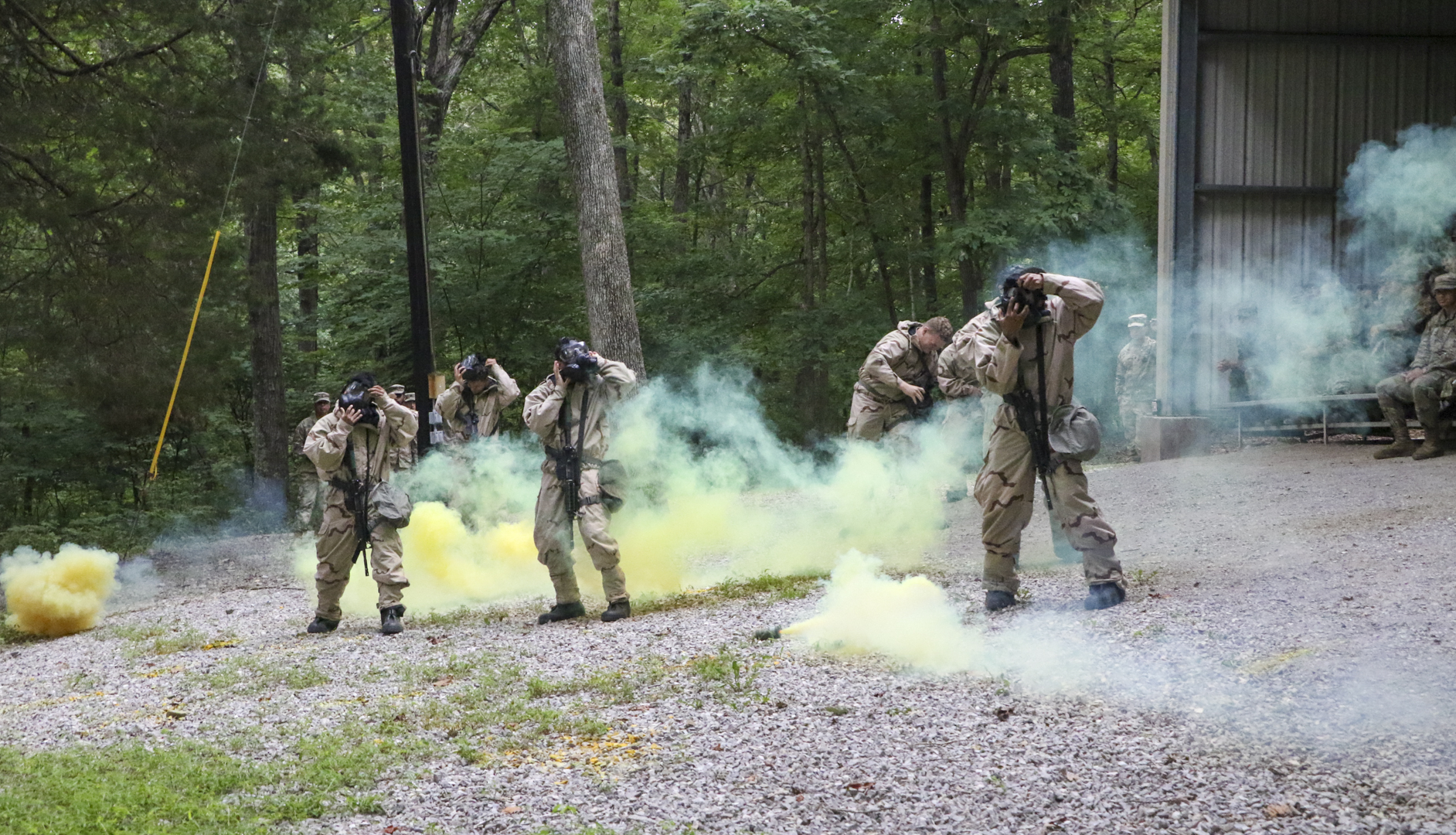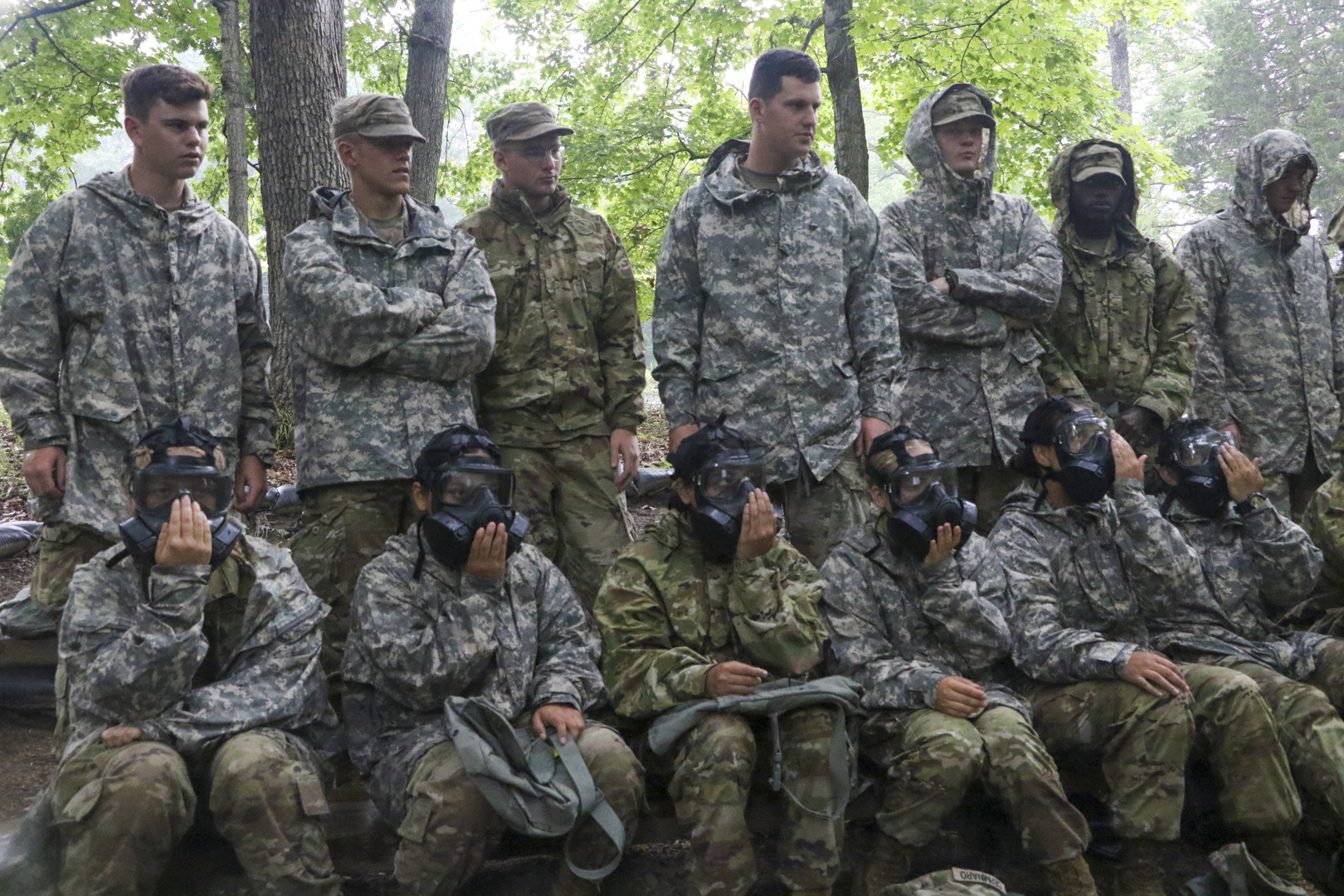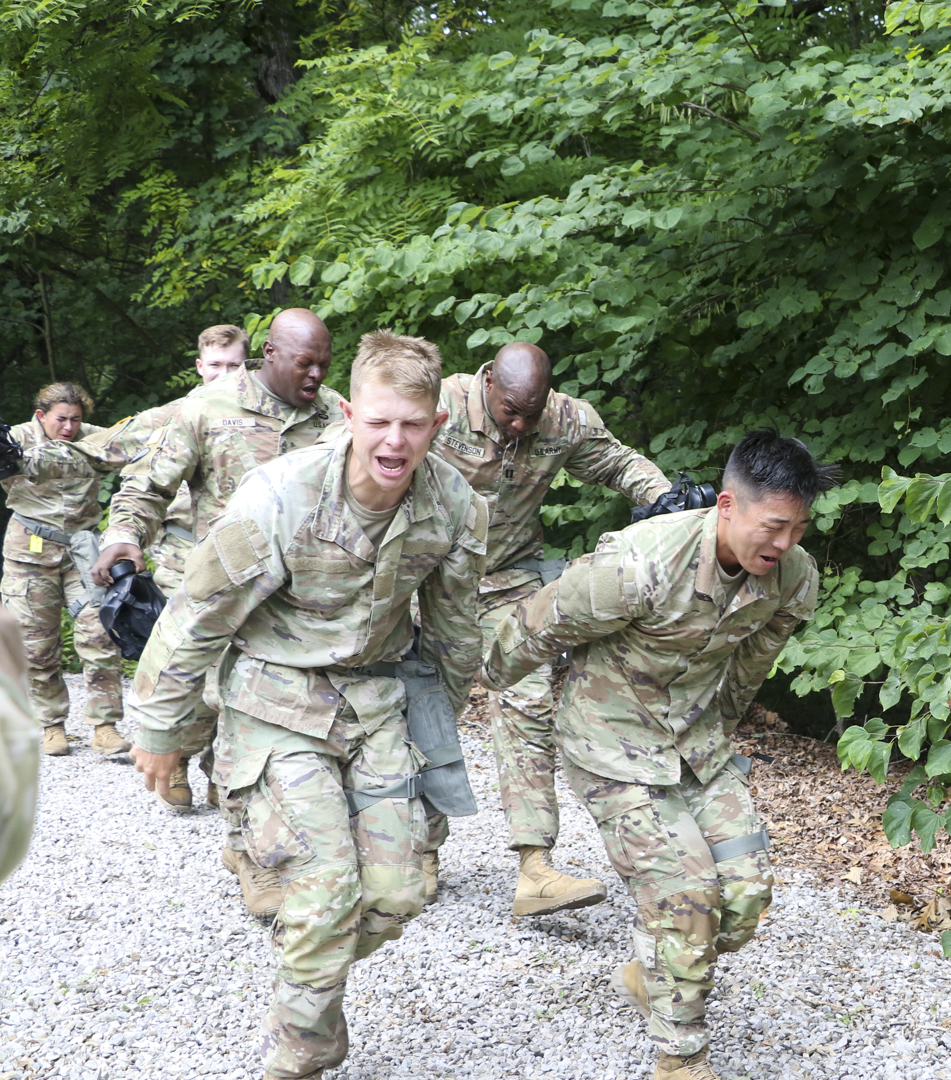FORT KNOX, Ky. — Armed with only their wits and a gas mask, Cadets from 9th Regiment, Advanced Camp, faced the Chemical, Biological, Radiological, and Nuclear chamber at Fort Knox, Ky. July 24, 2023.
Many Cadets go into the chamber to challenge themselves in a different environment by preparing them for possible encounters with toxic substances in the future.

“CBRN is the process and the description of being able to defend yourself from chemical warfare or any attack,” said Cadet Taylor Randazzo, Texas State. “We’re learning how to don a pro mask and how to protect ourselves against that chemical warfare by making sure we’re able to execute our mission, while not being afraid to use our gear and understand what it’s like to be in a situation where we don’t have the gear we need.”
Learning how to properly secure their gear, Cadets can utilize this training to not only protect themselves but others as well.
“We learned how to do everything properly, quickly, and efficiently,” said Cadet Dezairay McConnell, Morgan State University. “If you’re in an active war zone or somewhere where you need certain equipment, you need to know how to use it. You can help not just yourself but others too.”
No matter the branch the Cadets go into, CBRN training is important because they can put into practice the theoretical lessons they have been taught.
“Some people might not be aware of CBRN threats, what they can do to people, and how dangerous they can be,” said Cadet Casimir Szupica, University of North Carolina at Chapel Hill. “I think it’ll help to reinforce kind of what we’ve learned in the classrooms.”
As a prior enlisted Information Technology Specialist in 25 Bravo Regional Support Group at Corpus Christi, Texas, Randazzo has previous experience with the CBRN chamber. Reflecting on her prior experience, before she went into the chamber Randazzo had expectations for what it might feel like.

“Four years ago, I went through basic training at Fort Jackson, and I had the experience of going through the gas chamber,” Randazzo said. “The first time I went through it, it was a little nerve-wracking, in the beginning. I kind of have an idea of what to expect in terms of knowing how my body’s going to react afterward, but it’s not necessarily the same experience every time, so CBRN is still some sort of new, which makes it exciting.”
Before going into the CBRN chamber, many Cadets hold certain expectations for what the chamber might feel like, how they’ll react, or how long they’ll be able to handle the gas. Some are nervous, and some embrace the experience.
“I wasn’t nervous because I know it was not life or death, I knew it was going to suck, so I was just trying to embrace it,” McConnell said. “At first, you feel a light tingle on your neck and ears. We did a seal check where we released the mask and put it back, then we had to put our hands on the person in front of us, take our masks off, and sing the Army song.”
After going through the chamber for the first time, McConnell recognized that her experience didn’t fully match her expectations. Not only was her bodily reaction different than what she expected.
“No one threw up, but there were a lot of facial fluids. I kept spitting and had snot running down my face,” McConnell said. “They tell you, ‘Don’t close your eyes because it’s going to burn more,’ so blink a lot and flap your arms.”

Facing obstacles, like the CBRN chamber now, empowers Cadets to better understand their limits and become more confident in their abilities in the future.
“I think it’s good to go through that personal struggle of doing something that is very hard, challenging physically and mentally,” Szupica said. “It teaches you to trust your equipment and that it will protect you when you need it to. In the future, this sort of training could save our lives.”
After McConnell conquered the CBRN chamber, she gives advice to future Cadets.
“Do what you’re told, and then once you get out, just breathe deep,” McConnell said. “Once you’re out, you’re fine. I don’t even feel like I went through [the chamber] right now.”
Listening to the Cadre’s advice, preparing, and keeping a calm mind allows Cadets to succeed at the CBRN chamber and at Cadet Summer Training.
“To any Cadets that come to the CBRN chamber, don’t bypass the information that’s given to you,” Randazzo said. “You may not think it’s important, but, like anything in life, you’re not invincible and anything can happen, so it’s better to be prepared.”




